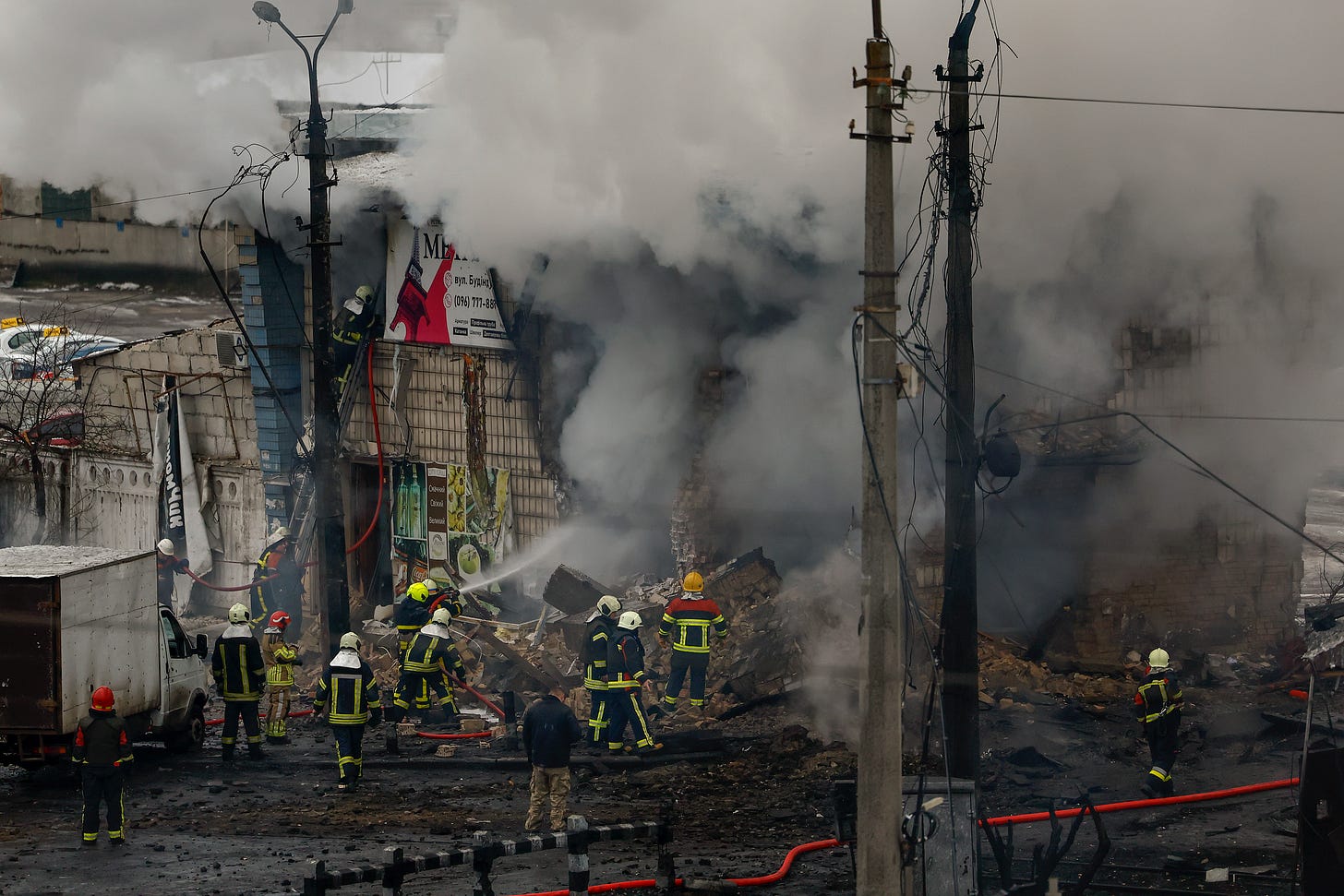US 'success' is Ukraine's disaster
In adopting "Success is confrontation" as a credo toward Russia, NATO states have invited catastrophe and undermined Ukrainian voices for peace.
In recent weeks, the New York Times reports, “Moscow has opened what amounts to a separate war: missile and drone strikes aimed at destroying Ukraine’s infrastructure, degrading the quality of life for millions of civilians in an effort to demoralize them.” Russia’s attacks, the Washington Post adds, have “battered Ukraine to the brink of a humanitarian disaster,” cutting off electricity, heat and running water. Ukrainian officials estimate that Russia has damaged or destroyed half of Ukraine’s energy infrastructure. “This winter will be life-threatening for millions of Ukrainians,” a senior World Health Organization official warns.
Russia claims that it only targets infrastructure that serves a military purpose. No matter what legal rationale Moscow can construe, the attacks are a clear act of collective punishment against Ukrainian civilians.
Without ignoring Russia’s criminal liability, another reality can be acknowledged: The fact that Russia “opened” a “separate war” on civilian infrastructure eight months into the invasion, and not beforehand, also results from decisions taken by Ukraine’s far-right and their allies in Washington.
The intensified Russian strikes were predicted by NATO states, whose leaders chose to prolong the proxy war by shunning diplomacy and — most likely — blowing up possible off-ramps, namely the now-forgotten Nord Stream 2 pipeline. The New York Times reported in September that Western officials were “baffled” that Russia, at that point, had “avoided escalating the war” and “made only limited attempts to destroy critical infrastructure”, leading them to fear that “the most dangerous moments are yet to come.” Rather than seeking a diplomatic solution, the US-led NATO alliance chose to help push Ukraine into the predicted danger. After all, the US “strategy for the war,” the Washington Post noted that same month, has entailed “fueling a war with global consequences, while attempting to remain agnostic about when and how Kyiv might strike a deal to end it.”
One does not need to justify Russia’s actions to acknowledge that the Kremlin, by contrast, has adopted positions that offered the chance of a preferable – or at minimum, pursuable – negotiated settlement.
The Minsk II Accords, the framework for ending the post-2014 Donbas war between Kiev and Russia-backed Ukrainian rebels, were officially supported by both Ukraine and the U.S., yet both refused to implement them. Ukraine’s far-right nationalists intimidated President Volodymyr Zelensky into abandoning his peace mandate with direct threats of a coup and even murder. The Biden administration, by refusing to even discuss NATO expansion prior to the invasion; sitting idle as Zelensky refused to negotiate with the Donbas rebels; and apparently sabotaging a Ukraine-Russia peace deal in April, has effectively taken the nationalists’ side.
Even Ukrainian officials and establishment US media outlets concede that Russia’s current war aim is to compel diplomacy. The strikes on Ukrainian infrastructure, the New York Times notes, “are meant to force Kyiv to the negotiating table.”
“It is clear they want to impose certain conditions, they want to make us negotiate,” Ukrainian Air Force spokesman Col. Yuriy Ihnat said. But Ukrainian officials, the Times adds, “are in no mood to negotiate.”
Kremlin spokesperson Dmitry Peskov has issued the same message, describing the strikes as “the consequences” of Ukraine’s unwillingness to “enter into negotiation.”
Ukrainians have every right to reject negotiations with their invader. Yet there can also be no denying that a significant percentage of the population – including people around Zelensky -- has, for years, favored positions that could have avoided the war, and end it today.



